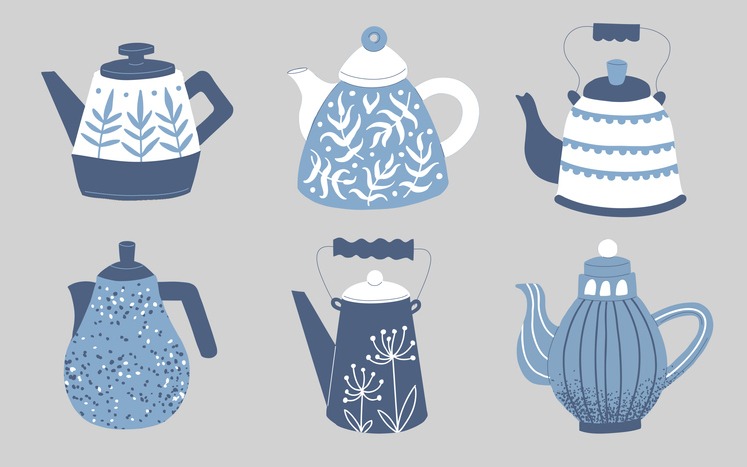
So much more than ‘dust-gatherers’, ‘trinkets’ or ‘tat’, a carefully curated collection of personal treasures can become a legacy of a life well lived, discovers Emily-Ann Elliott
CREDIT: This is an edited version of an article that originally appeared on Psychologies
As Prof Mueller explains: ‘No matter how lowly the object that a collector collects, it is just as important to him or her as someone who, for example, collects high end art.
‘In fact, it is often even more important. Some people who collect high end art don’t even keep it. They’ll put it into storage, hoping to gain a profit in five or ten years. But that’s not the collector that interests me. The collector who interests me has a passion and loves what they collect.’
Our collections often also bring us comfort, as our brains return to the moments when we found, bought or were given pieces for them. ‘Very often we might collect something that we can link to a particular event or place we visited,’ says Dr Elena Touroni, a consultant psychologist and co-founder of The Chelsea Psychology Clinic. ‘There is something about tangible objects and their ability to link to a positive memory we’ve had in the past that we’d like to treasure.’
Sue Bordley, author of Rescue Me, understands this autobiographical quality of a collection. Now aged 50, she has been collecting Caithness paperweights for almost 30 years. ‘I’d always thought they were beautiful, mystical objects, just like crystal balls,’ she says. ‘I was particularly fascinated by their names and that each one was unique. So, when I was asked by an aunt what I wanted as a 21st birthday present, I had no hesitation and I received the first one in my collection.
‘I add to my collection to celebrate major life events. There’s the one I got for my graduation, one in my wedding colours, one for each of our sons and one I bought myself to mark the start of my career as an author.
‘I have them on display on top of a 1930s art deco cabinet and they’re my pride and joy. I’ve even mentioned them in one of my books.’
This joy of collecting can emerge at a young age. Who hasn’t observed a small child gleefully gathering together their most treasured possessions and rearranging them for hours?
Prof Mueller says: ‘We know that 30 to 40% of adults collect things. However, one study showed us that as high as 80% of children collect. Like adults, children want to possess the things they find interesting. Plus, curiosity enhances learning, and we can learn so much from our collections.
‘Some people collect beautiful objects and display them, but whether they are beautiful or not, they can be organised. They can be put on a shelf and any interested person can be shown them and their background can be talked about.’
Dr Touroni agrees: ‘Objects can provide a sort of bridge to a particular memory. Their significance can help us hold something positive, or meaningful, in mind and this can be very comforting, especially in uncertain times.’
So, if you’ve ever felt a little embarrassed by your collection or you’ve always wanted to start one, now is the time to start collecting joyfully. Enjoy hunting for those special items, embrace the eBay bidding war. Because to other people our collections may seem insignificant. A set of teapots, framed prints by our favourite artist, anything and everything bearing a picture of a fox.
But to those of us with a collection, they have meaning. They’re the memories of days gone by. They’re the presents that loved ones have pressed into our hands with the words ‘I saw this and thought of you’. Maybe even one day, when we’re gone, they may be how our own family members remember us.
How to collect what you’re passionate about
Think about what makes you feel passionate and excited and base your collection around that. Starting a collection doesn’t have to be expensive. Search on Facebook Marketplace, in charity shops and at car boot sales for undiscovered treasures. Decide how you’d like to display your collection.
Whether it’s in a curio cabinet or a special album, giving your collection a dedicated space will make it enjoyable to look through and organise. Find a community with the same interest as you. There are so many online groups for collectors and lots of in-person meet-ups too. Spending time with people who are interested in collecting the same things as you provide an instant connection.
Ask your friends and family to tell you about their collections. It’s so interesting to hear the memories that people have connected to their collections. Plus having the opportunity to speak passionately about something we care about is good for the soul.


Be the first to comment